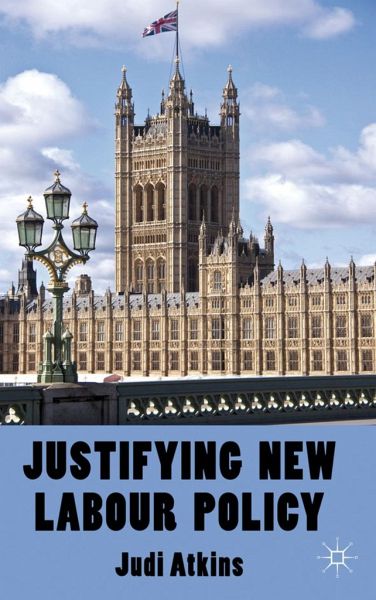
Justifying New Labour Policy
Versandkostenfrei!
Versandfertig in 6-10 Tagen
38,99 €
inkl. MwSt.
Weitere Ausgaben:

PAYBACK Punkte
19 °P sammeln!
An original combination of theoretical innovation and a detailed empirical analysis of the ideas, language and policy of New Labour. Politicians often appeal to moral principles and arguments in their efforts to win support for new policy programmes. Yet the question of how politicians use moral language has until now been neglected by scholars.














